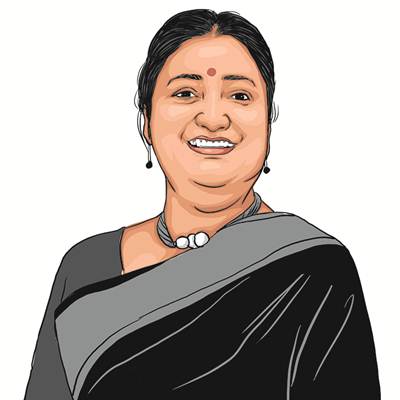Opinion They want your respect and support, not pity
Mallika Nadda writes: Initiatives like Special Olympics help create awareness and remove barriers for persons with intellectual disabilities
 Global research shows that people with intellectual disabilities often receive substandard healthcare compared to others, despite being at much higher risk of developing secondary health conditions that impact their quality of life and even mortality. (File)
Global research shows that people with intellectual disabilities often receive substandard healthcare compared to others, despite being at much higher risk of developing secondary health conditions that impact their quality of life and even mortality. (File) Of the many phone calls in my life over the years, few have stayed with me as much as the one I received about two years ago. It was from a worried mother of a child with an intellectual disability (ID), whose primary concern wasn’t just for her own son, despite knowing that he would struggle due to the lockdown and his compromised immunity. Her most pressing worry was about another parent whose child was still on the waiting list for a diagnostic test to identify ID. This is the solidarity of the community, a community comprising over 25 million persons with intellectual disabilities and their families, a community that had to face a frightening question as the world tumbled into uncertainty in 2020: What would this mean for those like them who were already severely underserved by the existing systems?
Unfortunately, most of these concerns turned to reality as the pandemic gripped the world. However, two years on, we at the Special Olympics are determined to turn the tide once and for all. Special Olympics is a worldwide movement started in 1968, to create a better and more equal world by fostering acceptance and inclusion of persons with intellectual disabilities, through the transformative power of sports. This is done by providing year-long sports training and the opportunity to participate in competitions such as the Special Olympics World Games for Persons with ID. Sports can draw attention to what the athletes can do, and not what they can’t, helping them develop physical and cognitive fitness, take pride in their abilities, and share empowering experiences together. Our fight for a fairer, more inclusive world, starts with ensuring access to the most basic of human needs – healthcare.
Global research shows that people with intellectual disabilities often receive substandard healthcare compared to others, despite being at much higher risk of developing secondary health conditions that impact their quality of life and even mortality. One of the best examples to illustrate this dire situation is looking at the prevalence of untreated health conditions. Examination reveals that 35 per cent of Special Olympics athletes have obvious, untreated tooth decay. This alarming fact underlines the unpleasant truth that persons with ID either do not have access to healthcare or the care they receive is not appropriate, which can be largely attributed to the discriminatory attitudes towards disability. And this situation has further deteriorated in the last two years. As the world struggles to find its feet and heal from the blows of the Covid-19 pandemic, the fight is much harder for this integral, but often overseen, part of our society.
The government has multiple schemes to support the healthcare of persons with disabilities, such as the Rashtriya Bal Swasthya Karyakram (RBSK) which aims at early identification and intervention to cover the four Ds (defects, deficiencies, diseases and developmental delays, including disability) , cochlear implant under the ADIP scheme etc. However, a need to spread awareness and remove all the barriers for persons with intellectual disabilities is very much required. This is not only the responsibility of the government, but of each one of us. Every individual has the power to effect change.
With our nation celebrating Azadi Ka Amrit Mahotsav, to commemorate 75 years of Indian independence, we believe that India’s march towards progress and empowerment is incomplete without including each and every section of the population, especially the most disenfranchised. Hence, Special Olympics Bharat has launched the “National Health Fest for Divyangjan – We Care”, a national health programme to screen 75,000 persons with intellectual disabilities across 120 cities of India on World Health Day 2022 (April 7). The initiative aimed at setting records for conducting the largest health and fitness programme across the country and screening a record number of people with ID across the country in a single day. Seventy-five thousand medical and sports professionals will be trained to provide high-quality healthcare and training to athletes with ID. Moreover, 750 Special Olympics Bharat Centres will be activated to develop fitness and sports through a community-based approach. All this is part of a “Return to Play” movement, that aims to bring Special athletes back to the sports field after two years, by gradually examining their physical and medical readiness.
However, the real importance of this initiative goes far beyond creating records. The legacy that truly matters lies in changing public perception of intellectual disability. It lies in the collective action of a united country that finally stands alongside those who have often been excluded, and in the lasting, generational impact on improving the quality of life of individuals, families, and communities.
Persons with intellectual disabilities are not looking for, or are in need of, pity or sympathy. All they ask for is recognition of their abilities, respect for their unique way of life, and a fair chance to not just survive, but also thrive in a world that they can call their own.
This column first appeared in the print edition on April 8, 2022 under the title ‘A festival of inclusion’. The writer is chairperson of Special Olympics Bharat and a social activist associated with Himachal University, Shimla







